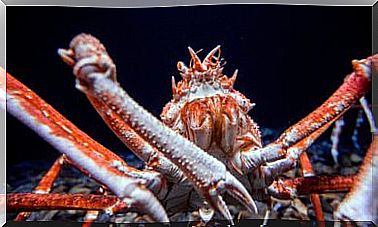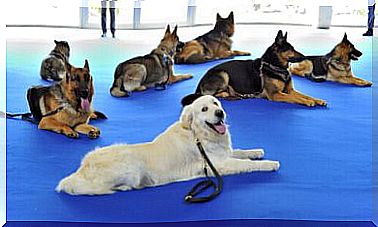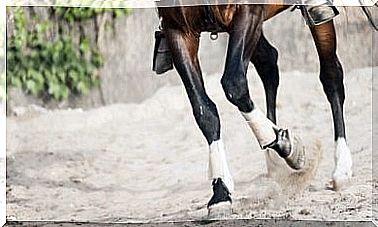Coccidiosis In Dogs, Cases Increase
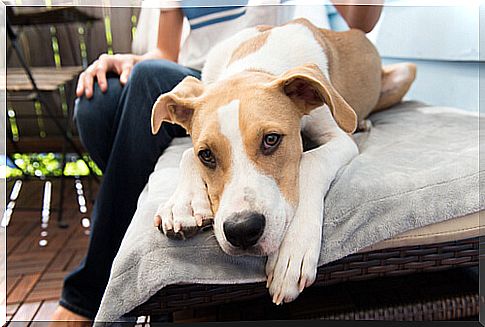
If your four-legged friend has constant vomiting and diarrhea, it is important to rule out coccidiosis. It is a disease caused by an infection with coccidia , the particular parasites that populate the small intestine of dogs and cats.
Contact with fecal material is the main cause of the transmission of this parasite. The reason is simple, since coccidia deposit their eggs in the animal’s feces and which, due to accidental contact, can trigger the infection.
Puppies are more prone to suffer from this type of infection, among other things, because they have a weaker immune system than an adult pet. Stress, changes in daily routines, or even other infections weaken your best friend’s body defenses.
It should be noted that a proper diet is essential for pets to enjoy optimal health. In addition, proper nutrition prevents the formation of coccidia in dogs and cats.
What are the symptoms of coccidiosis in dogs?
The main symptoms of coccidiosis are vomiting, diarrhea, and in most cases, blood can be seen in the stool. As the disease progresses, the animal may experience noticeable weight loss, as well as dehydration and lack of appetite.
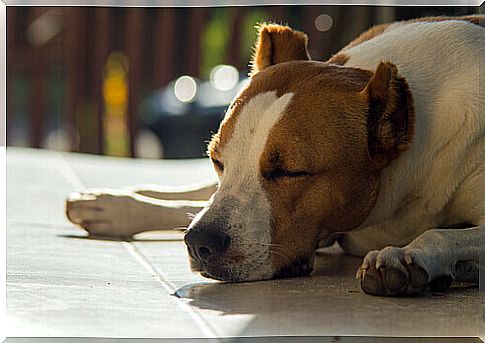
Of course, it is vital to address symptoms quickly to avoid pet decay. This can trigger a situation that could even lead to death.
However, in the case of adult cats and dogs, the symptoms are not as obvious. Indeed, animals can coexist with the internal parasite, without producing any conditions that make one suspect the presence of the disease.
How to detect coccidiosis in dogs
- The eggs of the coccidia protozoa take a long time to mature, from one day to a week, after being laid in the faeces. Therefore, after these days the risk of infection increases.
- For dog owners, symptoms are the only way to detect infection. Coccidia parasites are microscopic, so your vet will request an examination of the pet’s stool right away.
- In the case of pets adopted or left in a shelter, a periodic evaluation of the feces is recommended. Although the animals show no symptoms of coccidiosis, they may be in an incubation phase .
- An early diagnosis of the disease prevents epidemics or infections that could also affect other specimens. As with other conditions and diseases, prevention is always better than cure.
How to prevent a coccidiosis infection?
Contact with feces is the leading cause of coccidiosis infection. A small amount, in contact with the animal’s mouth, is sufficient to trigger the infection.
In general, contact occurs because the area where the dog plays or sleeps is not adequately clean. If a toy, a ball or other has come into contact with infected feces, a simple contact with the dog’s mouth will be enough to create favorable conditions for coccidiosis.
That is why it is necessary to remember that the first preventive measure should be the care of hygiene. It is therefore essential to keep the place where dogs play and rest clean to avoid infection.
To do this, you need to clean the areas where your dogs usually defecate with disinfectants, as well as collect the stool immediately. In this way the contamination of the place and the reproduction of coccidia are avoided.
Some specialists recommend the use of deworming agents as preventative methods, especially when coccidiosis occurs in a litter. However, no medication should be administered without the proper supervision of your trusted veterinarian.
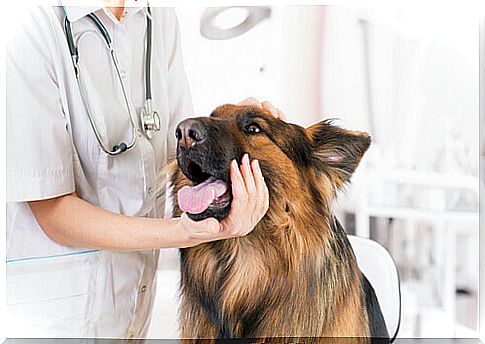
What to do if there is a suspicion of coccidiosis
- First, you should go to the vet right away. The procedure before a coccidiosis is simple and effective and consists in the dosage of a product for deworming that blocks the life cycle of the parasite.
- In addition, the animal receives rehydration treatment for the recovery of electrolytes lost with vomiting and diarrhea. Only in cases where the animal is severely dehydrated is hospitalization necessary.
- When coccidiosis occurs on a farm or where several animals live, the infected animal must be quarantined. In this way, the risks of contagion are avoided.
- In case there is a pregnant female it is advisable to take samples of her stool. This can prevent future puppies from becoming infected.
- In addition, the place where the little ones will stay should be kept clean at all times. Any premature infection could lead to fatal consequences for newborns.
- Specialists remind you of the importance of carrying out periodic checks for pets and taking care of their deworming processes. These are of paramount importance, especially where multiple dogs or cats live.


